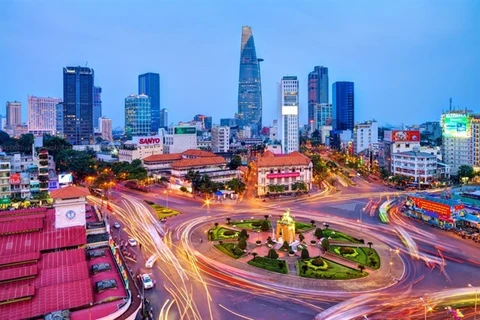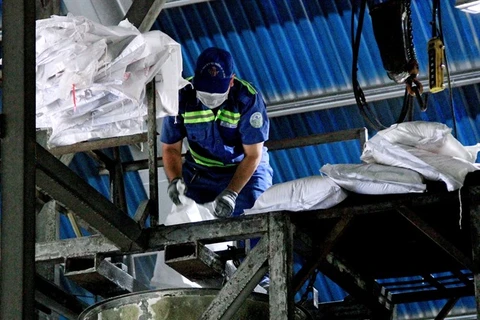HCM City (VNS/VNA) - Property experts have urged Ho Chi Minh City to issue a special policy on new urban residential complexes to prevent the rampant and unsustainable development of residential projects.
The policy should address site clearance and the issuance of construction licences, they said.
More than 20 years ago, Phu My Hung became the first model of a New Urban Zone in the city. Located in District 7, it covers more than 300ha, including condos, houses, villas, shopping malls, schools and hospitals.
Since then, Phu My Hung has been one of the city’s most celebrated new urban areas. The residential complex is known as one of the most exclusive residential and commercial zones in the city and the entire country.
More than 30,000 people live and work in the area, half of whom are foreigners.
After the success story of Phu My Hung, HCM City continued to develop other new projects such as the Sala new urban residential complex in District 2 and Him Lam in District 7.
In the city’s eastern part, the Van Phuc city new urban residential complex was developed in Thu Duc district. Covering 198ha, Van Phuc city includes villas, houses, shophouses, entertainment areas, parks, hospitals and international schools.
Nguyen Huong, general director of Dai Phuc Land, said that new urban residential complexes could become a sustainable model for the city’s planning and development.
These kind of projects are developed over a period of time in several phases, with the overall aim of creating modern residential areas with many amenities and higher property values, developers said.
At a recent conference on property investment in HCM City, Nguyen Thanh Phong, Chairman of the municipal People’s Committee, said the city would develop large-scale new urban residential projects. “These projects will improve the quality of life for residents and help develop a smart city,” he said.
However, developers continue to build projects, mostly condos, on small areas of land without consistent and sustainable planning, according to Phong.
The city has approved many new urban residential complex projects, but most of them are still on paper, except for a handful of projects such as Van Phuc city and Vincity.
In 2010, the city’s People’s Committee asked the Hoc Mon district People’s Committee to speed up a project to develop An Phu Hung new urban residential complex covering 700ha, with the aim of making it the city’s second "Phu My Hung-like" new urban zone.
However, the project has never been implemented due to a lack of investment.
Another project, the Sing Viet new urban residential complex in Binh Chanh district, covering 331ha with a cost of 1.939 trillion VND (84.3 million USD), has been planned for 20 years, but has not started for the same reason.
Other delayed projects include Binh Quoi-Thanh Da and Thu Thiem in District 2.
Ngo Quang Phuc, general director of the Phu Dong Real Estate Group JSC, said the concept of new urban residential complexes is common in more developed countries.
He said that HCM City should provide incentives for property developers to start such projects throughout the city, especially in suburban areas, to ensure that residents have easy access to public services such as health care, education and roads.
According to experts, new urban residential complexes, designed by architects and constructed by real estate developers working with the city and central governments, would help improve residents' quality of life and access to public services. — VNS/VNA
VNA























